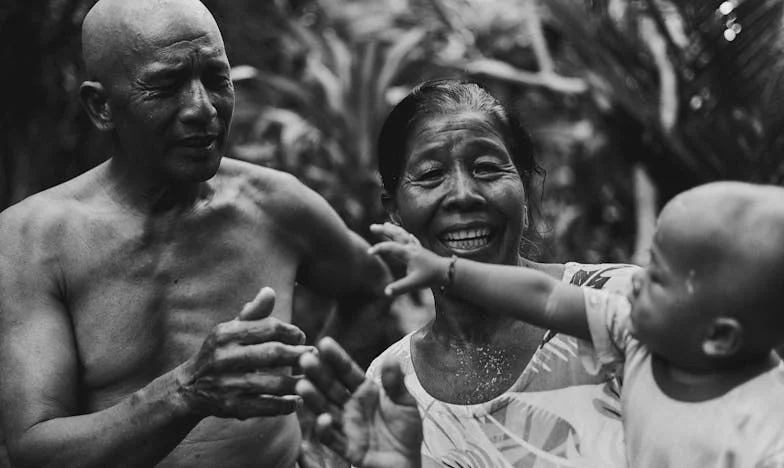Ice and Opportunity: The Night I Saved a Life and Lost My Place
“Ma’am, please! I can’t find my grandson!”
The man’s voice was raw with panic, echoing across the snowy banks of the Hudson River. I was already moving before he finished. My boots crunched through the icy crust, and my breath billowed like smoke. A small, bright red jacket caught my eye near the water’s edge—the kind my grandson, Danny, used to wear when he was little. But this wasn’t Danny. This was a stranger’s child. Without thinking, I threw my purse aside and plunged into the freezing current.
The cold was a slap, then a thousand knives. I could barely see as I reached out, desperate fingers scrabbling for the little boy’s arm. When I finally dragged him to shore, I collapsed, coughing and shivering, clutching the child to my chest. The grandfather—tall, expensively dressed, his face familiar from local news—fell to his knees beside us. He pulled the boy from my arms, tears streaming down his face.
“Are you okay?” he asked, but his eyes never left the boy. “Are you—what’s your name?”
“Mary,” I managed, teeth chattering. “Mary Thomas.”
The paramedics arrived, and everything became a blur of blankets, flashing lights, and questions. I refused the ambulance. I couldn’t afford it. I was already behind on rent, and my daughter, Lisa, needed help with the kids. I was just relieved the boy—Teddy, they called him—was alive.
The next morning, my phone rang. I almost didn’t answer. The caller ID said “Marshall Grant.” I knew the name—he owned half the businesses in town.
“Ms. Thomas, it’s Marshall Grant. I want to thank you again for saving my grandson.”
I waited, heart pounding. Maybe he’d offer something: a reward, a job, a place to stay. Anything to help me get back on my feet.
“I spoke with the manager at the Main Street Grill. They could use another dishwasher. It’s not much, but it’s steady work. I told them you’d be by today.”
My throat tightened. That was it? I’d risked my life. I’d thought, for a moment, that maybe—just maybe—my luck had changed.
“Thank you, Mr. Grant,” I said quietly. “I’ll go by today.”
After I hung up, I sat at the kitchen table, staring at the cracked linoleum. My daughter came in, still in her bathrobe, rubbing her eyes. “Mom? Who was that?”
“Just someone from yesterday. Offering me a job.”
She studied me, concern furrowing her brow. “You okay?”
I almost laughed. “I’m fine. Just cold.”
Later, at the Main Street Grill, the manager barely looked up. “You’re the one Grant sent? You can start tonight. Bring your own gloves.”
The hours blurred together—scraping plates, loading racks, hot water burning my frozen hands. At midnight, I limped home, my body aching. The streets were empty, the world silent except for the crunch of my boots.
Days passed. I worked, slept, and worried. Every time my phone rang, I hoped it was Grant, calling to offer something more. But he never did. I saw Teddy’s face in the paper, smiling from a hospital bed. They called him a miracle. No mention of me.
One evening, Lisa cornered me in the kitchen. “Mom, why are you doing this? You’re not a dishwasher. You were a teacher. You raised me.”
“That was a long time ago, honey. Jobs don’t just appear.”
“You saved that boy’s life! You deserve more.”
“Deserve,” I repeated. The word tasted bitter. “Nobody gets what they deserve, Lisa. Not people like us.”
She slammed a mug down. “You’re letting him treat you like you’re nothing.”
“I’m doing what I have to. For us. For the kids.”
We didn’t talk for two days after that.
One afternoon, Teddy and his mother came into the diner. She recognized me right away. Her expression was complicated—guilt, maybe, or embarrassment. Teddy hid behind her leg.
“You’re the lady who saved me,” he whispered.
His mother handed me an envelope. “From my father. He wanted you to have this.”
Inside was a check for a thousand dollars. I stared at it, hands trembling. It was a fortune to me, but it felt heavy, like a bribe to forget the rest.
“Thank you,” I said, forcing a smile.
At home, I showed Lisa the check. She shook her head. “It’s not enough, Mom. He should have done more.”
“It’s something,” I whispered. “It’s a start.”
But that night, I lay awake, staring at the cracks in the ceiling. I kept thinking about dignity, about how easy it is for people like the Grants to toss crumbs and feel like heroes. I thought about my grandson, about the life I wanted for him. I wondered if saving a life should cost you your own sense of worth.
Sometimes, I still see Marshall Grant in the papers, all smiles and charity galas. Teddy waves if he spots me in town, but his mother never meets my eyes. I keep washing dishes, keep hoping for something more.
Does one act of heroism change your life—or just remind you how invisible you really are? Would you have taken the job? Or demanded something more?
